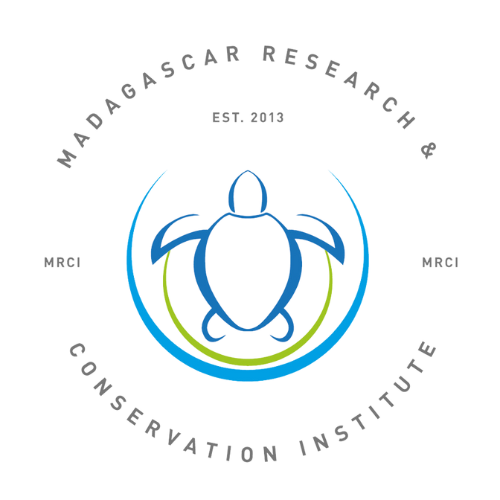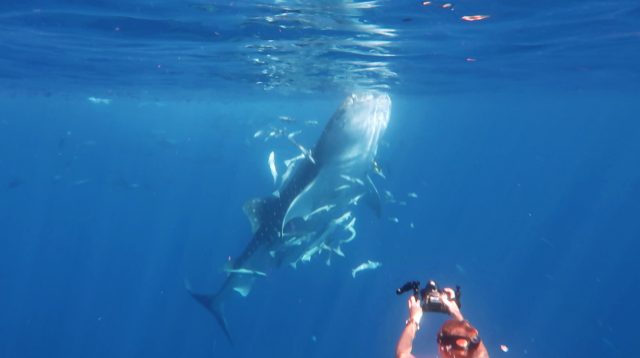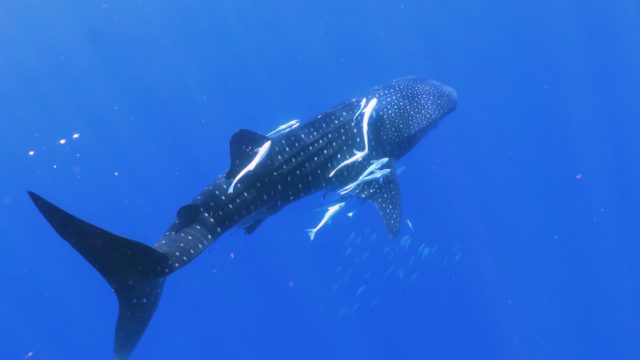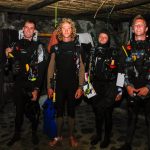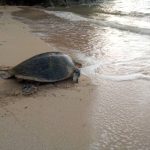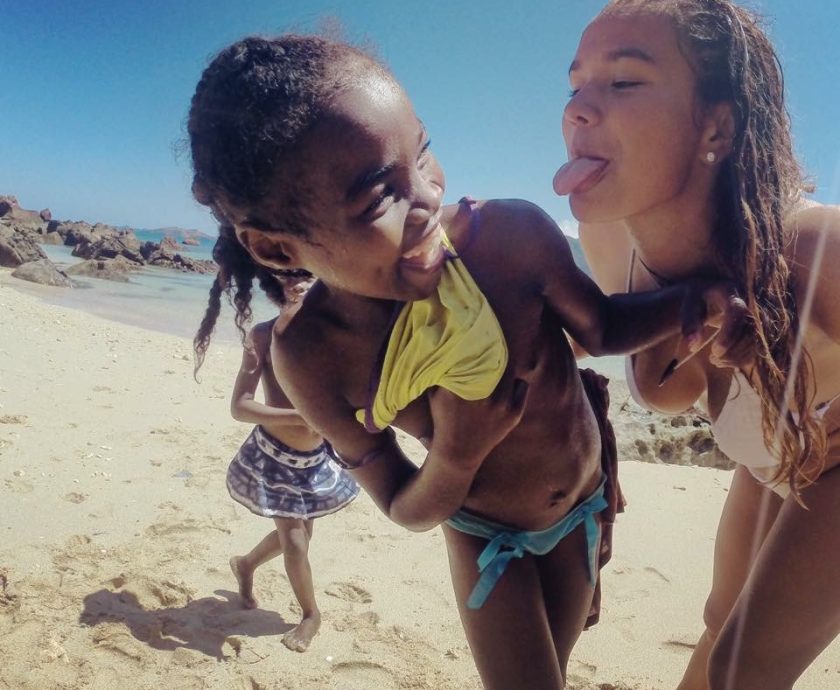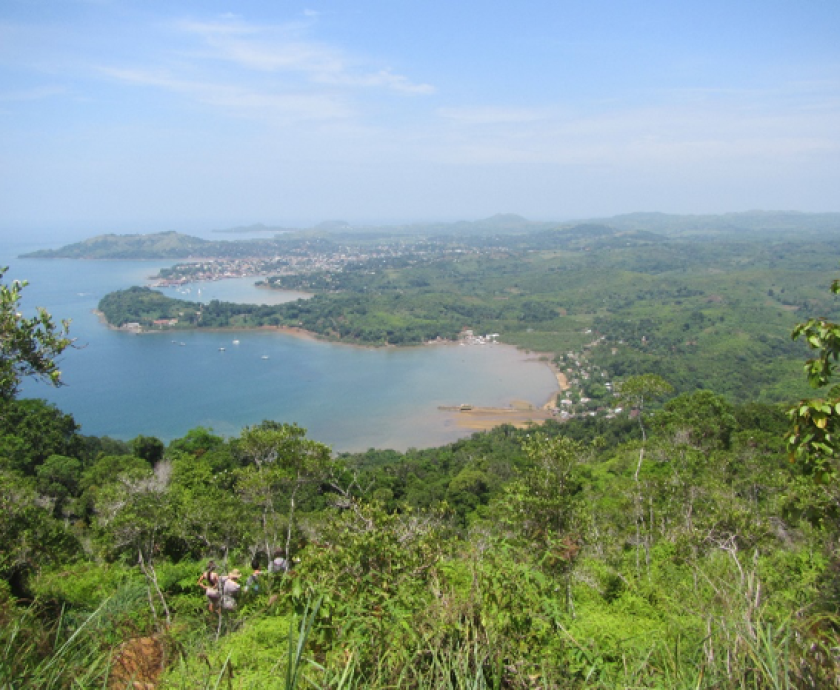Swim with a Whale Shark in Madagascar!
Our Volunteers have the opportunity to do a large variety of trips and activities during their free time on the weekends. This time of the year just so happens to include getting to swim with whale sharks! These gentle giants are filter feeders, meaning that they sieve plankton through their gills to feed. This diet of plankton, krill and sometimes small fish, makes whale sharks no danger to humans. Although they are very docile creatures it is still important to respect them and practice responsible eco tourism while swimming with them. If you get the chance to swim with whale sharks (which we HIGHLY recommend) be sure to keep a respectful distance from them. You should never touch the whale shark. If the whale shark is comfortable and not stressed by your presence, (because you’re behaving respectfully so) chances are it will stay at the surface longer, allowing you to spend more time with the amazing creature!
Madagascar is a great place to knock swimming with whale sharks off your bucket list! The waters around Nosy Be have been identified as a hotspot for juvenile whale sharks to feed. A study by the Madagascar Whale Shark Project, which was initiated in 2016 by researchers from the Marine Megafauna Foundation, Florida International University, and Mada Megafauna has been tracking whale sharks in the Nosy Be area. Lead author and project leader Stella Diamant said: “We’ve found that whale sharks regularly visit Nosy Be between September and December. That has led to a growing ecotourism industry, as people travel to see and swim with these gigantic, harmless sharks. We’re still learning about their population structure and movement patterns, but it’s clear the area is an important hotspot for the species” (divemagazine.co.uk).
Unfortunately, there is still little known about this species. In recent years more studies have developed to actually learn about this previously over looked animal. Hopefully with more exposure this insanely beautiful animal will become more protected and understood.
What we do know about whale sharks is that they are the largest fish on the planet and have been known to reach up to 14 meters in length and can weight over 12 tons! Getting in the water can be intimidating regardless of the fact that they pose no threat to humans simply due to their massive size. Remember to get into the water slowly and feel free to keep your distance if it makes you more comfortable. You do not need to be next to the Shark to enjoy the experience. Due to the fact that they are so large means that in good visibility you can keep a comfortable distance and still have a great view of the animal. Overall the point of swimming with whale sharks is to have fun and enjoy the experience!
Want to learn how to dive? Check out our PADI Courses and our Volunteer Marine Conservation Program.
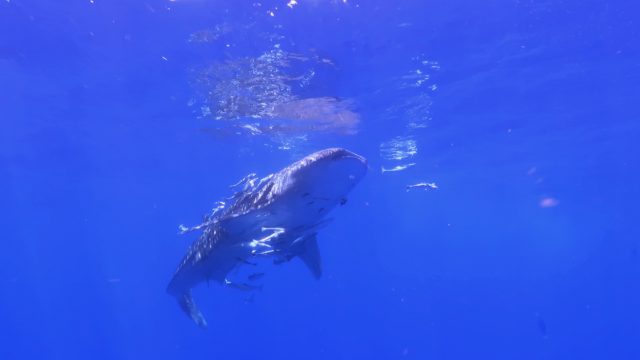
Follow us on Facebook and Instagram to keep up with all of our amazing adventures!
